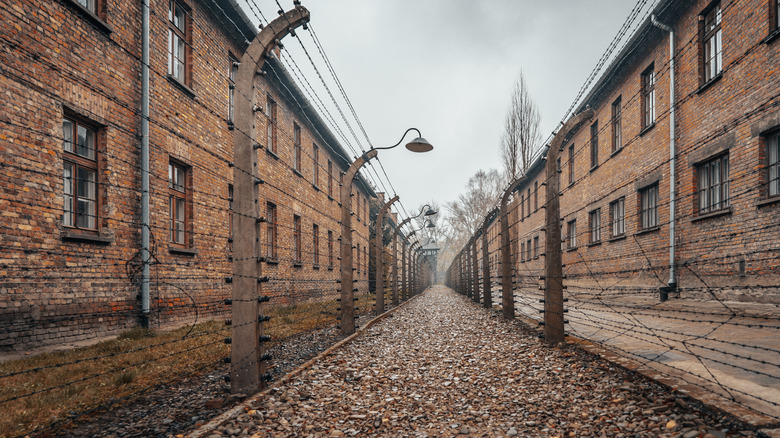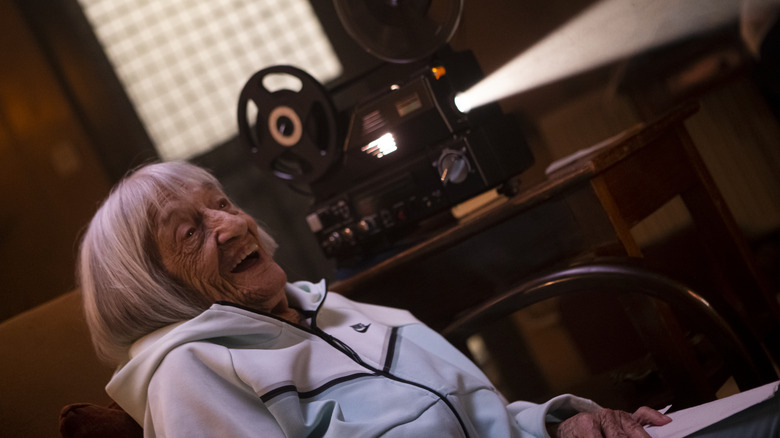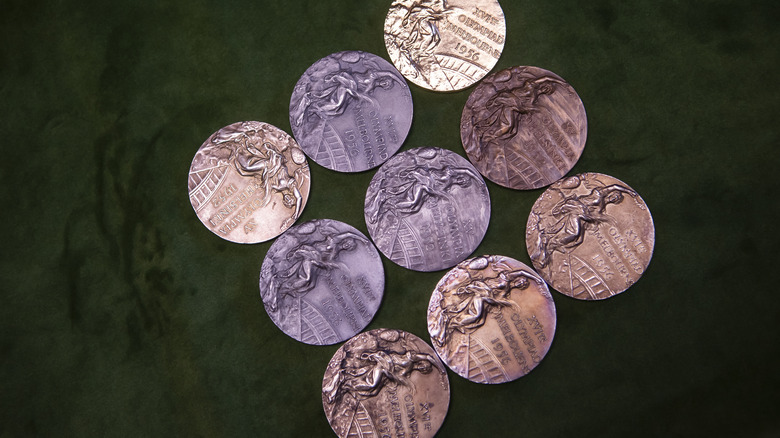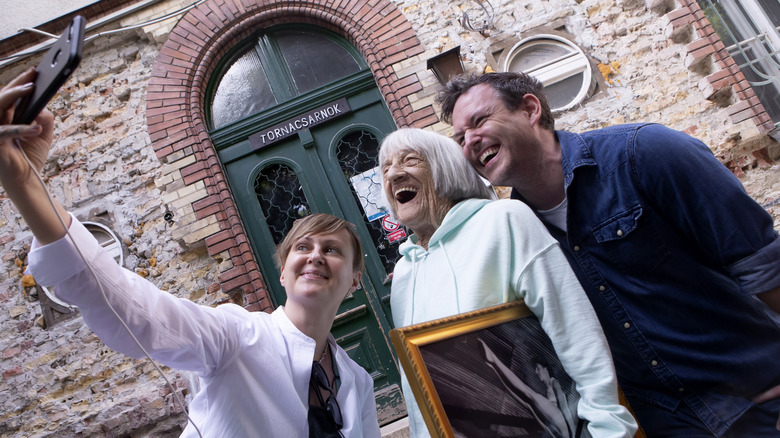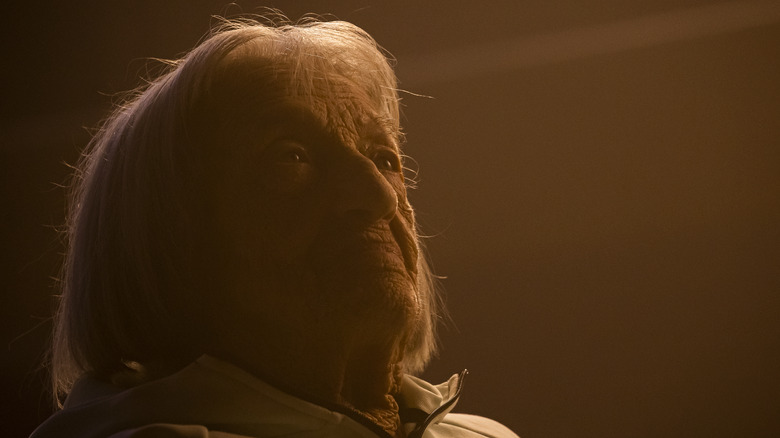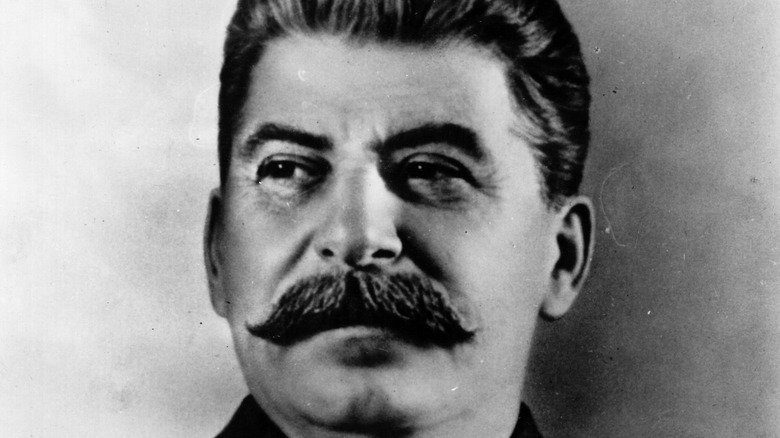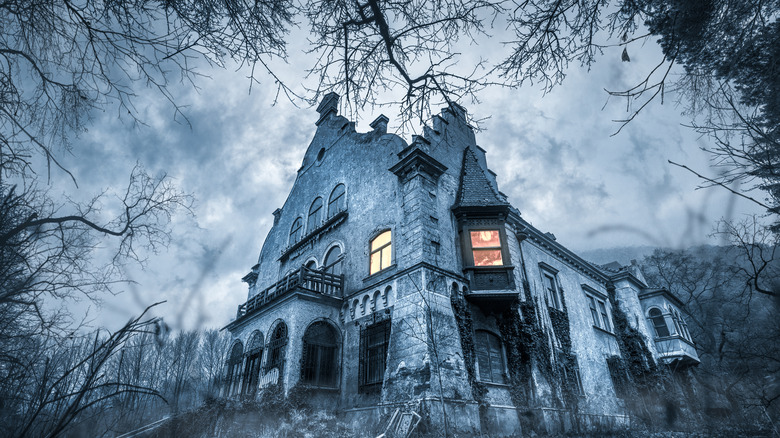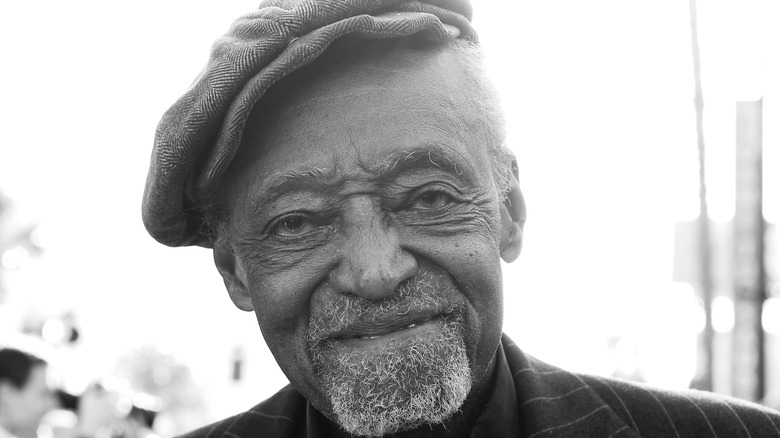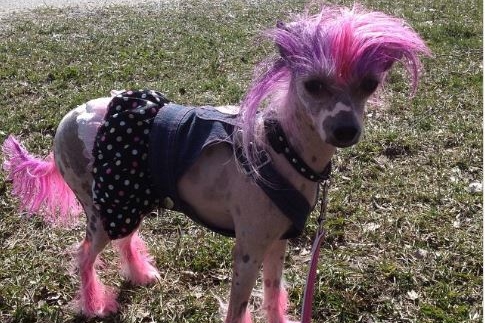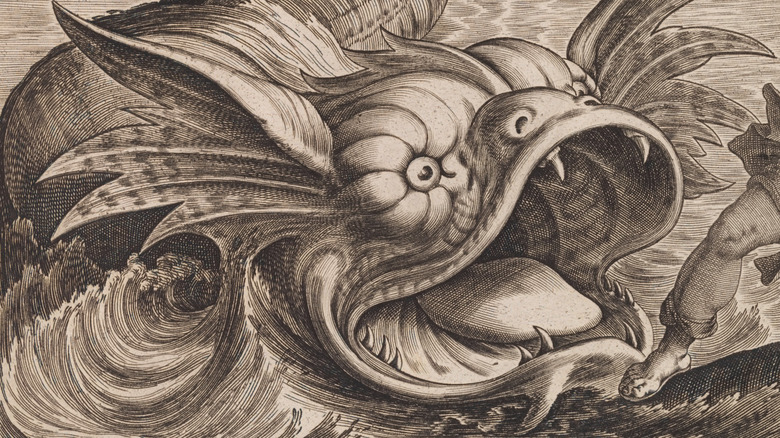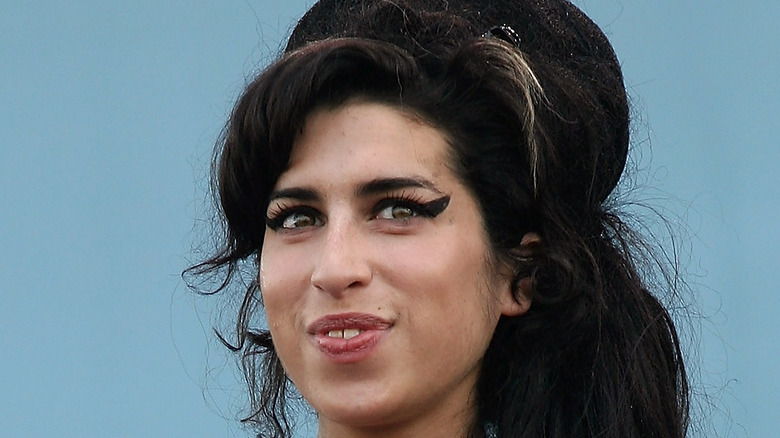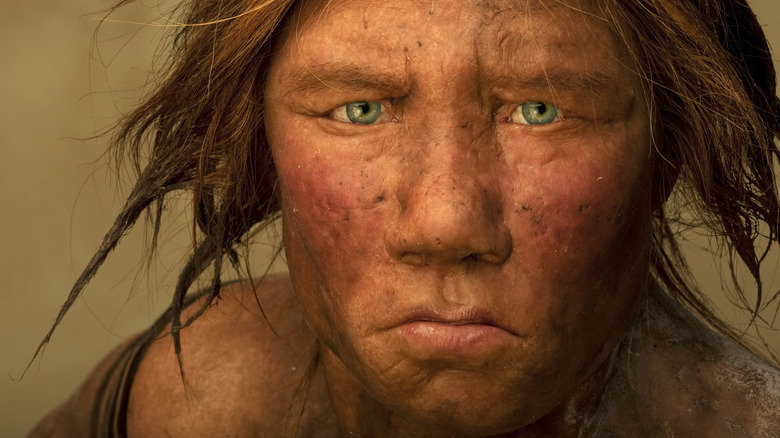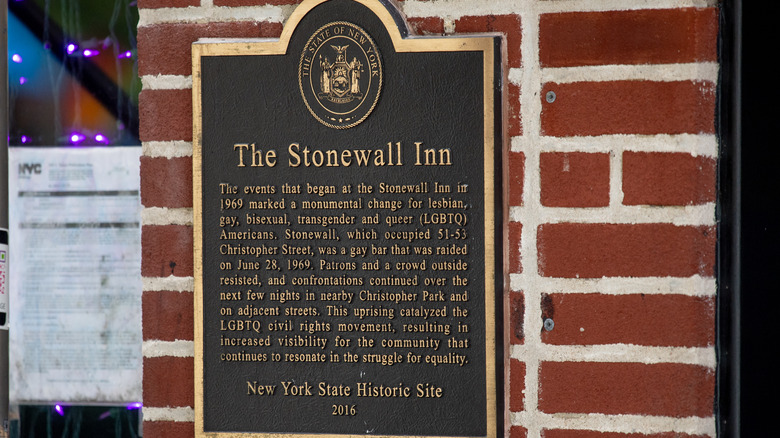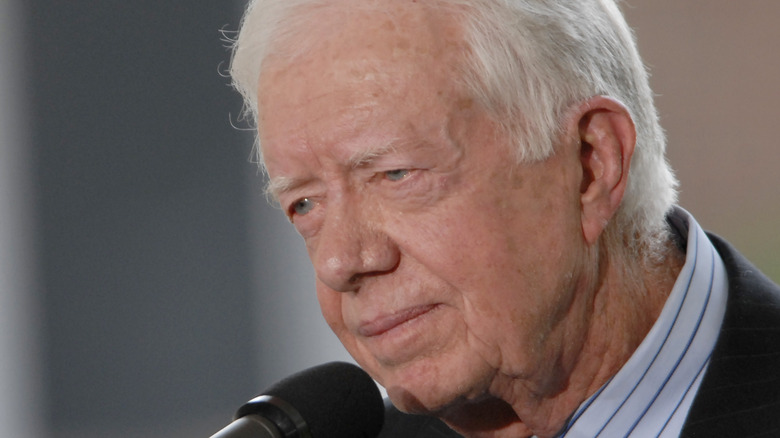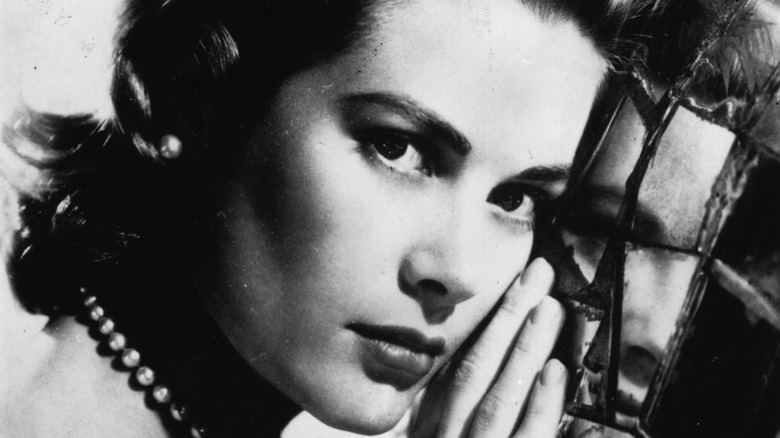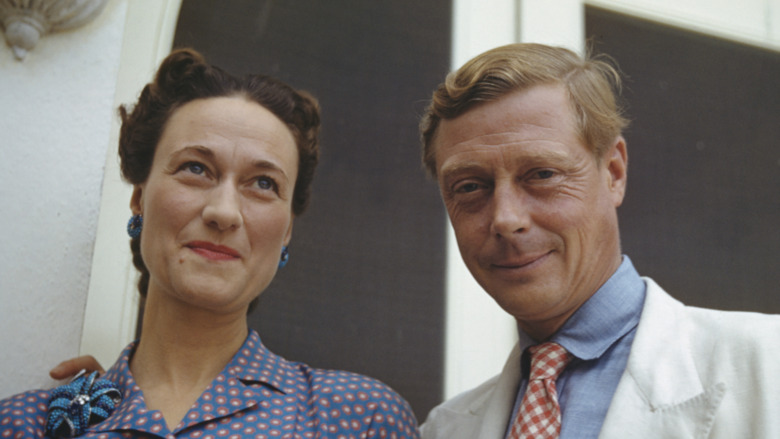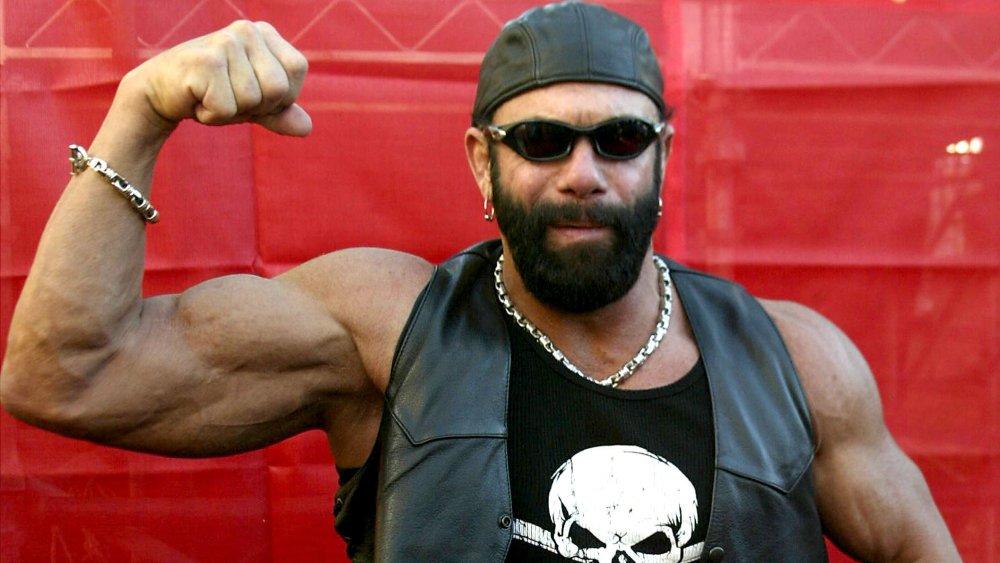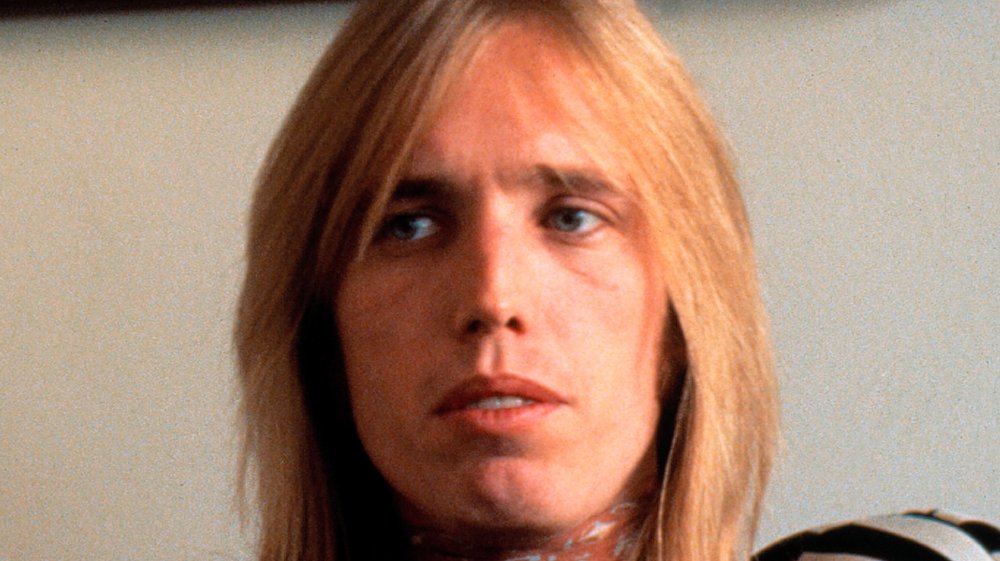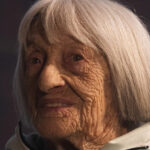
The Untold Truth Of The Oldest Living Olympian
Life expectancy is increasing every year in developed and developing countries. As a result, there is also an increase in the number of people who are centenarians — 100 years old or older. According to the United Nations, nearly 570,000 people might become centenarians in 2021 (via Statista). On January 9, Agnes Keleti became one of them, but incredibly, it is not the most outstanding achievement in her life. The Hungarian gymnast won 10 Olympic medals, survived the Holocaust, and is the oldest living Olympic champion alive.
“These 100 years felt to me like 60,” Keleti said while celebrating her birthday in Budapest (via The Guardian). The gymnast also received a call from the President of the International Olympic Committee, Thomas Bach, who said her life is an inspiration. “You have demonstrated the power of strong determination and courage to overcome tragedy. These are the attributes of a great Olympic champion,” Bach said (via Olympics). The book “The Queen of Gymnastics: 100 Years of Agnes Keleti” was released this year to celebrate her milestone birthday. However, Keleti says that calling her a queen is “an exaggeration.”
Keleti has received numerous awards during her life. In 2004 she became one of the “12 Athletes of the Nation” in Hungary and received the Israel Prize, the state’s highest honor, in 2017. Keleti often sounds humble about her impressive achievements in the Olympics (via AP News). “I excelled?” she wondered out loud. “I did what I could, and that’s it.”
Agnes Keleti survived the Holocaust
Agnes Keleti had started training when she was four years old, and at age 16, Keleti was the Hungarian National Champion in gymnastics (via The Guardian). The country had big expectations for Keleti for the Tokyo Olympic Games in 1940. However, World War II changed everything, and the Games were canceled in both 1940 and 1944.
Those years weren’t easy for Keleti. In 1941, the athlete was expelled from her gymnastics club for being Jewish. Later, her father and uncle died in the gas chambers of Auschwitz, and Keleti managed to escape the country with her mother and sisters. “I managed to buy the identification papers of a Christian girl; she was around the same age as me. In Hungary, all the Jews were required to wear a yellow star for identification, but I refused. With my false papers, I managed to escape to the country. I stayed in a remote village and found work as a maid.”
Keleti married to escape labor camps
During World War II, Agnes Keleti heard a rumor that married women didn’t have to go to labor camps. Trying to save her life, Keleti married Istvan Sarkany in 1944. Sarkany was also a prolific athlete who achieved national titles and represented Hungary during the Berlin Olympic Games in 1936. According to the Jewish Women’s Archive, the Swedish diplomat Raoul Wallenberg, who saved thousands of Jews in Hungary during the Holocaust, helped save her mother and sisters.
Sadly, escaping the concentration camps was not a guarantee of a peaceful life. Keleti had to hide until the war ended and experienced traumatic moments. Many people lost their lives during the Battle of Budapest in the winter of 1944-1945. Every morning Keleti collected bodies of people who died the day before and placed them in a mass grave, and her maid job had her working for a family of Nazi sympathizers.
Keleti made her debut in the Olympics at age 31
After World War II ended in 1945, Agnes Keleti started training again (via Olympics). Keleti won the Hungarian championship in 1946 in the uneven parallel bars and started her international career in the following year at the Central European Gymnastics Championships, which she won. Later, the athlete started working at the Faculty of Gymnastics of the Budapest School for Physical Culture.
Keleti seemed unstoppable and was one of the favorite names for the London Games in 1948. However, Keleti suffered a serious injury two days before the event started. Hungary finished second, and the team received a silver medal. Keleti competed for the first time at the Olympic Games in 1952 when she was 31 years old, an age when most athletes are slowing down their careers. The Hungarian athlete won four medals that year: a gold in floor exercise, a silver in the combined team event, and two bronze in uneven parallel bars and hand apparatus-team (via Jewish Women’s Archive).
Keleti also competed at the 1956 Melbourne Olympics, winning six medals, including four gold.
Keleti remained in Australia in 1956
In 1956, politics changed Keleti’s life once again. Shortly before the Olympics, Israel invaded Egypt’s Sinai Peninsula, and Soviet tanks entered Budapest. The invasion led to a boycott of the Olympics, and Spain, Switzerland, and the Netherlands refused to compete (via CBC). Although Hungary competed, dozens of Hungarian athletes asked for political asylum after the Games were over, including Keleti.
She stayed in Australia for a few months and worked in a factory. In 1957, an Israeli emissary invited her to participate in the fifth Maccabiah Games, and she moved to Israel with her mother and sisters. Keleti coached the Israeli Olympic gymnastics team until the 1990s. In 1957, she married Robert Biro, a Hungarian physical education teacher (via Jewish Women’s Archive).
Keleti built a prestigious career in Israel, and she received the Israel Prize, the most significant state honor, in 2017. The decorated athlete lived in Israel until 2015 when she decided to move back to her home country.
Keleti believes children should train their brains
Keleti has impressive achievements in her life. Among Jewish athletes, only American swimmers Mark Spitz and Dara Torres have earned more Olympic medals, but she doesn’t seem impressed. “It’s not the medals that are significant but the experiences that came with them,” she said (via AP News).
The former athlete can still perform full leg splits, and she is proud of her energy and strength. Although she doesn’t follow sports on television, she has a strong opinion about the pressure children suffer. “That’s not good,” Keleti said. “Tough gymnastics exercises damage their development. It shouldn’t be started early. Not to mention that, in the first place, it’s the children’s minds that should be developed, not their bodies.”
Keleti says that children should be motivated to learn languages and see the world, something she also had the chance to do during her life.
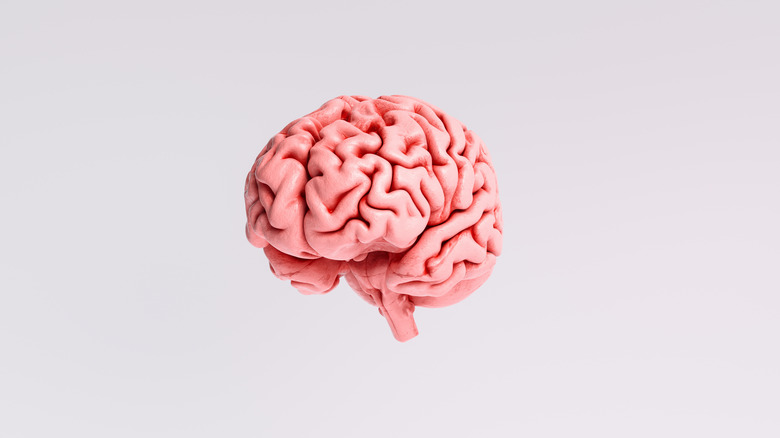
The Tragic Real-Life Story Behind The Smartest Man To Ever Live
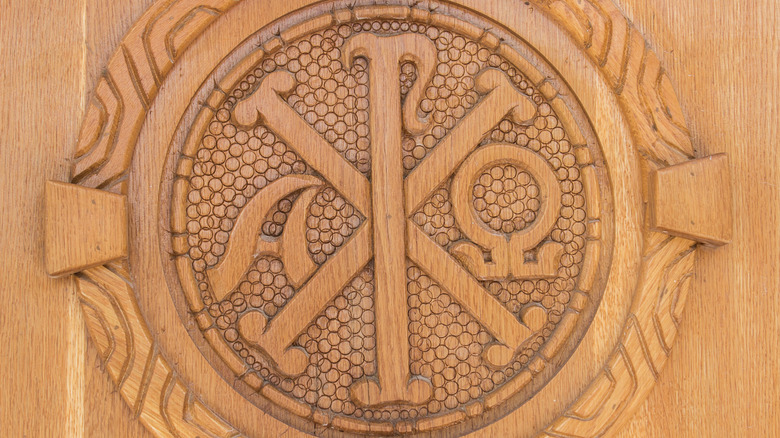
Major Christian Symbols Explained
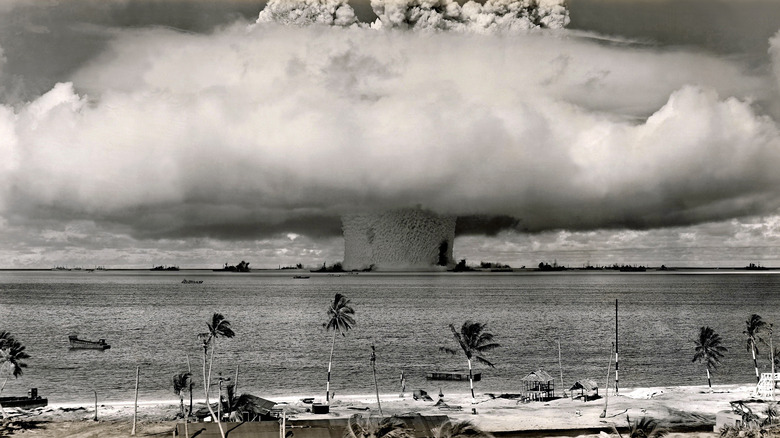
Here's Why Nuclear Bombs Form Mushroom Clouds

New Atlantis: The Crazy True Story Of The Micronation

This Is How Fake Holocaust Survivor Misha Defonseca Was Caught
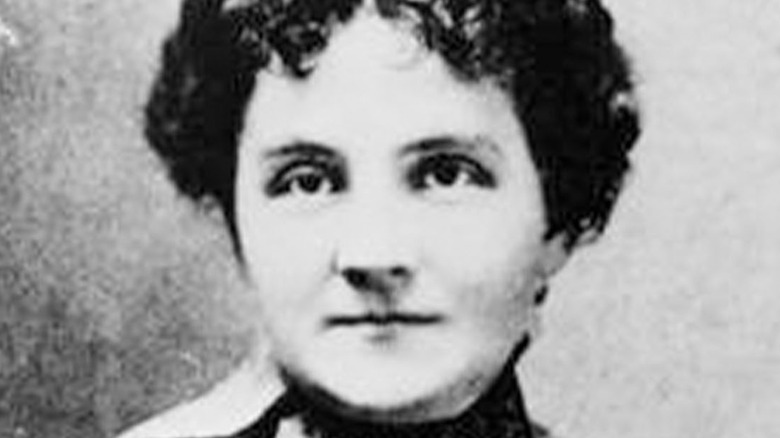
The Fake Heiress Who Conned America's Banks In The 1800s

This Was The Dress Code Of The Knights Templar
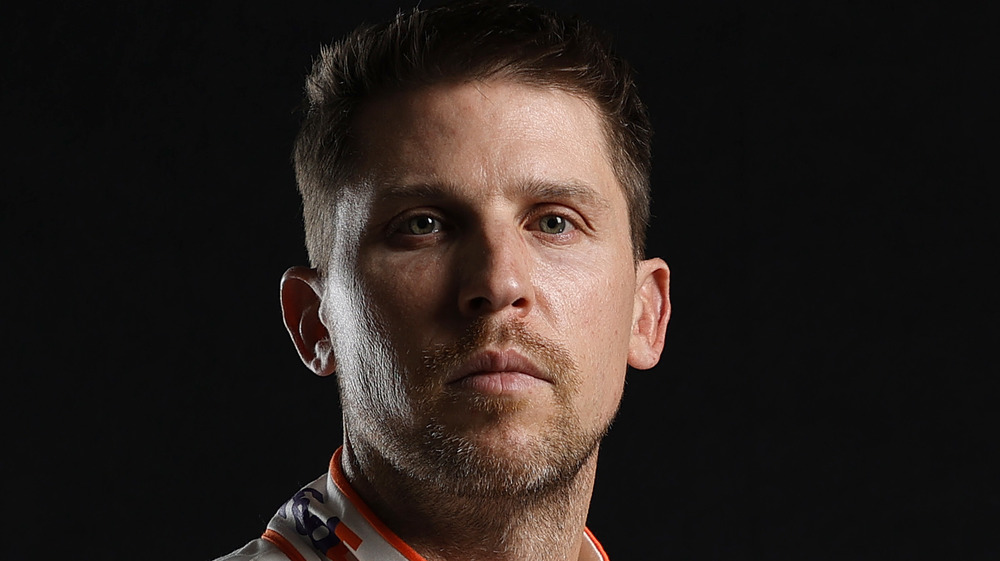
Where Does Denny Hamlin Live And How Big Is His House?
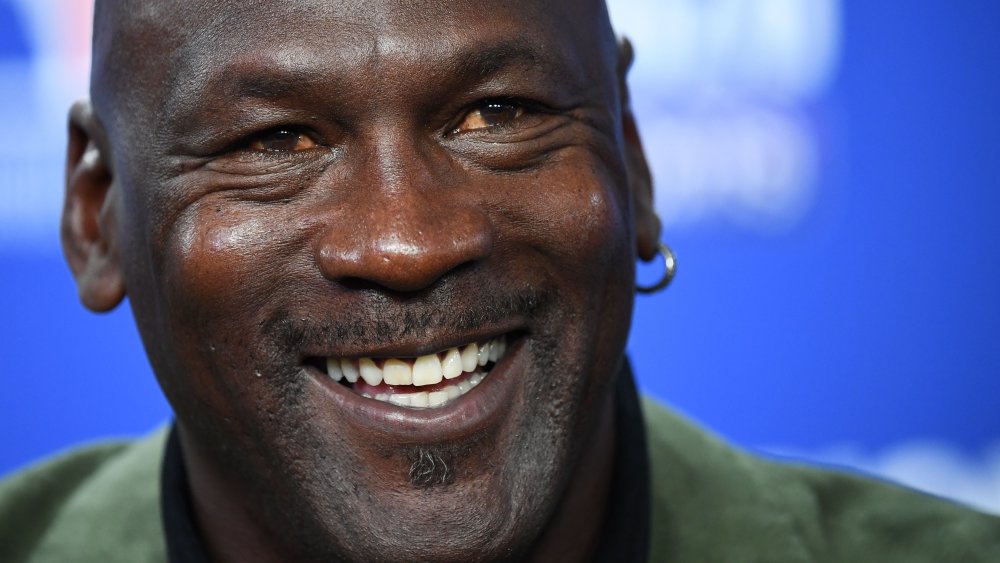
Every Athlete That's A Billionaire Today

The Most Surprising Coach Firings Of All Time
